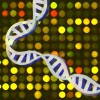Posts tagged Pharmacogenomics

Harnessing the power of bioinformatics in cancer research
Nov 22nd
One of the biggest challenges facing cancer researchers is that the disease varies so much from person to person. Even the same type of cancer – lung, brain, breast, colon, and so on – can be subtly different. This means that a therapy that works well in one patient may have no effect in another.
So researchers in the UK brought in the big guns – bioinformatics.
Cancer Research UK has set up seven British centers to start collecting 9,000 tumor samples from a wide range of cancer patients to create a DNA database. Researchers will extract DNA from these tumors and More >

One Size Does Not Fit All
Nov 11th
In 1994, there were more than 2.2 million serious medical cases, and over 100,000 deaths from negative reactions to prescribed drugs. (NCBI) These numbers have made adverse drug reactions one of the leading causes of hospitalization and deaths in the US. Currently, there is no easy way to determine how a patient is going to respond to a medication, so pharmaceutical companies are relying on a “one size fits all” policy. But as we can see with the amount of hospitalizations and deaths each year, there has to be a better way. One area that is shedding hope on this More >

How can I prolong health? Hmmm…..
Nov 6th
Having an edge on the stock market can allow one to make hundreds, thousands or even millions of dollars. But rarely do we think of having an edge on life. Since the sequencing of the human genome our understanding of human genes and their interaction has grown. Geneticists now have the capability to analyze genetic make-ups, and elucidate what genetic patterns will evolve into certain conditions or disease states.
Any individual has a unique genetic profile different from that of another person. Contained within these differences are unique genetic variations that may make a person more susceptible to diseases such as More >

Medicine or Poison? It’s in Your Genes, duh…
Sep 24th
As the ongoing deciphering of the human genome provides us with more and more insights about our predisposition for diseases and genetic disorders, (see Your Genes Your Health for examples) I am equally, if not more astounded by what it tells us about our ability to utilize medicines to counteract diseases.
Just recently, a group of researchers at the University of Maryland School of Medicine have identified a variant of a gene that is believed to play a major role in determining why people do not respond to a popular anti-clotting medication. This gene variant, carried by as many as a third More >
